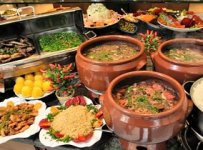Brazil, the largest country in South America, is a rich tapestry of diverse cultures, traditions, and beliefs. Amidst this cultural mosaic, religion plays a pivotal role in shaping the social fabric of the nation. With a population of over 200 million people, Brazil is home to a myriad of religious expressions, but perhaps none as dominant and pervasive as Catholicism. In this article, we delve into the intricate landscape of religion in Brazil, focusing primarily on the prominence of Catholicism as the largest religious affiliation in the country.
Historical Context:

The roots of Catholicism in Brazil can be traced back to the early colonial period when Portuguese explorers arrived on its shores in the 16th century. With them, they brought the Catholic faith, which became deeply entrenched in the fabric of Brazilian society. The Portuguese crown and the Catholic Church worked hand in hand to propagate and institutionalize Catholicism, establishing churches, missions, and religious orders across the vast expanse of the Brazilian territory.
Throughout the colonial era and into the period of independence in the 19th century, Catholicism remained the official religion of Brazil. The Church wielded significant influence over various aspects of society, including politics, education, and culture. This enduring legacy has left an indelible mark on Brazilian identity, shaping the religious landscape for centuries to come.
Contemporary Profile:

Even in the 21st century, Catholicism continues to hold sway as the predominant religion in Brazil. According to the latest census data, approximately 65% of Brazilians identify as Catholic, making it the single largest religious affiliation in the country. Despite facing challenges from other religious movements, such as Evangelical Protestantism and Spiritism, Catholicism maintains a strong foothold in Brazilian society.
One of the key factors contributing to the resilience of Catholicism in Brazil is its deep-rooted cultural significance. Catholic traditions and rituals are woven into the fabric of everyday life, from religious festivals and processions to rites of passage such as baptisms, weddings, and funerals. The imagery of Catholic saints adorns public spaces, and iconic landmarks like the Christ the Redeemer statue in Rio de Janeiro serve as powerful symbols of faith and devotion.
Moreover, the Catholic Church continues to play a prominent role in social welfare initiatives, education, and healthcare, particularly in underserved communities. Catholic charities and organizations are actively involved in alleviating poverty, providing humanitarian aid, and promoting social justice, garnering support and goodwill from millions of Brazilians.
Challenges and Adaptations:
Despite its enduring popularity, Catholicism in Brazil faces several challenges in the modern era. One significant trend is the rise of Evangelical Protestantism, which has experienced exponential growth in recent decades, particularly among marginalized communities. Evangelical churches, with their charismatic leaders and dynamic worship styles, have attracted a sizable following, posing a competitive challenge to the Catholic Church.
Additionally, Brazil’s secularization and increasing religious pluralism have led to a decline in traditional religious practices among certain segments of the population. Younger generations, in particular, are exploring alternative spiritual paths or identifying as non-religious, reflecting broader global trends towards secularism and individualism.
In response to these challenges, the Catholic Church in Brazil has undergone a process of adaptation and renewal. Efforts to revitalize religious education, engage youth through social media and digital platforms, and foster interfaith dialogue have been implemented to meet the evolving needs of believers in a rapidly changing society. Moreover, the Church has sought to address social issues such as poverty, inequality, and environmental degradation, aligning its mission with the broader aspirations of Brazilian society.
Conclusion:
In conclusion, Catholicism remains the dominant religious force in Brazil, shaping the nation’s cultural identity and social dynamics. Despite facing challenges from other religious movements and secularization trends, Catholicism continues to exert a profound influence on Brazilian society, evident in its rituals, traditions, and social outreach initiatives. As Brazil continues to navigate the complexities of the modern era, the Catholic Church remains a cornerstone of spiritual and social solidarity, uniting believers across diverse backgrounds in a shared journey of faith and service.


